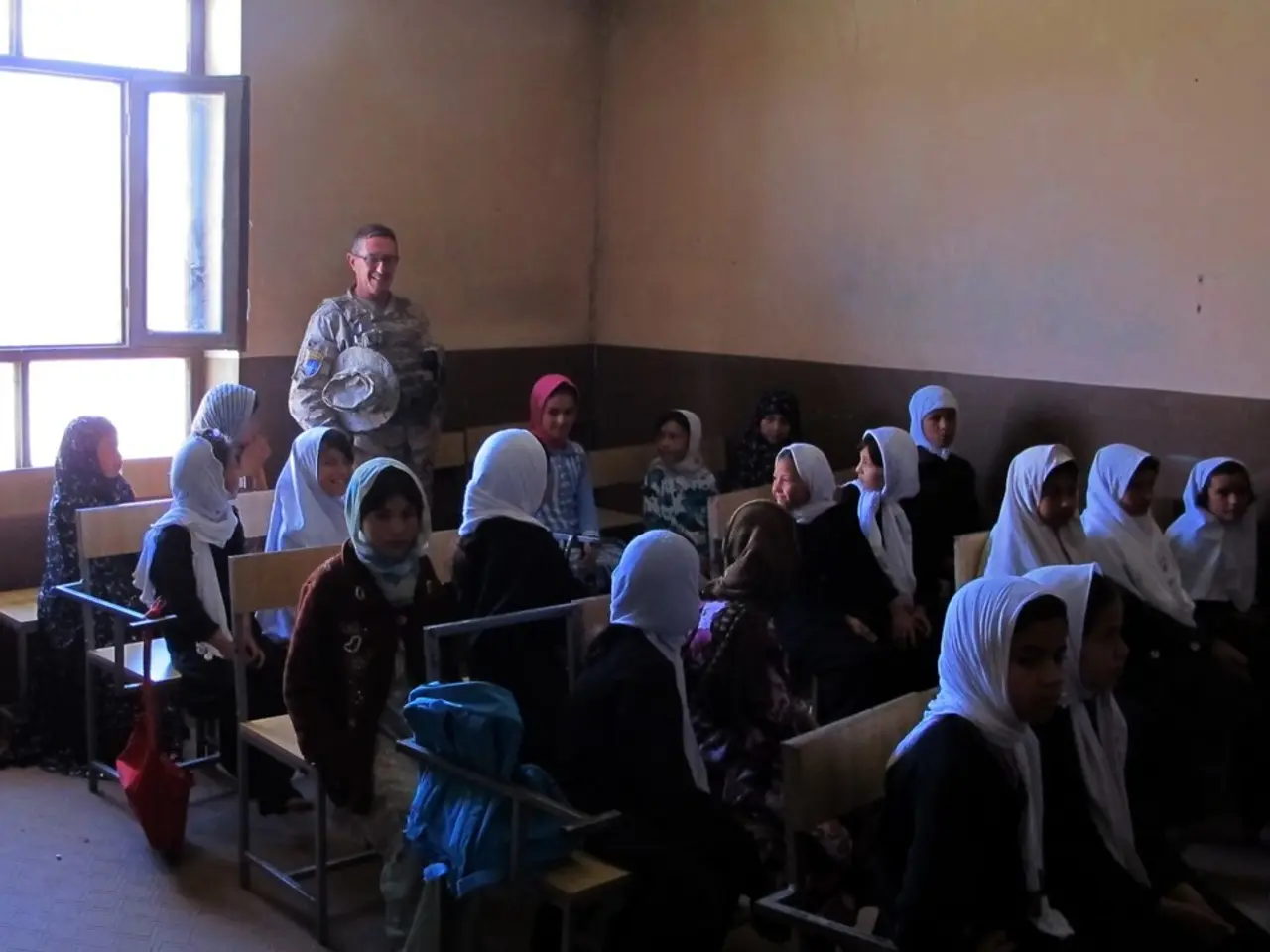Comparing Educational Systems: IB, American, or A-Level/AP? Which System Offers the Superior Curriculum?
When it comes to choosing a curriculum for high school students, there are several options available. Among the most popular are A-Levels, the International Baccalaureate (IB), and the American Curriculum with Advanced Placement (AP) courses. Each curriculum has its own strengths and weaknesses, and understanding these differences can help students make an informed decision.
Academic Rigor
The International Baccalaureate Diploma Programme (IBDP) requires students to study six subjects across diverse groups at both Higher and Standard Levels. This broad and deep study is complemented by core elements such as the Extended Essay, Theory of Knowledge, and Creativity, Action, Service (CAS), promoting critical thinking and depth. A-Levels, on the other hand, involve deep specialization usually in 3-4 subjects, providing strong mastery but with a narrower focus. AP courses offer rigor but tend to focus on breadth and fit within a broader US high school curriculum, often with less specialized depth than A-Levels.
Global Recognition
The IB is widely accepted and highly regarded by leading universities worldwide due to its comprehensive, challenging nature and international standards. A-Levels also enjoy excellent global recognition, especially in the UK, Commonwealth countries, and many global institutions. AP courses are well-regarded primarily in the US and increasingly recognized globally but can be less standard internationally compared to IB and A-Levels.
Flexibility for Students
IB requires breadth across disciplines plus core research and community components, offering an interdisciplinary approach and skill development that adapt well to various future paths. A-Levels allow high subject choice and tailoring to student strengths and university/career aspirations but with less cross-disciplinary breadth since students specialize early. AP allows students to select multiple courses but within a wider and less specialized American curriculum structure, which can be flexible but less structured in preparing for specific advanced university programs.
A Summary of the Curriculums
| Curriculum | Academic Rigor | Global Recognition | Flexibility | |---------------------|-----------------------------------------|-----------------------------------|-----------------------------------| | International Baccalaureate (IB) | Broad and deep study; core interdisciplinary components; research and service | Widely accepted worldwide; prestigious | Balanced breadth and specialization; develops critical thinking, lifelong skills | | British Curriculum (A-Levels) | Deep specialization in fewer subjects; rigorous exams | Widely recognized, especially in UK and Commonwealth | High subject choice; tailored to career paths; less breadth | | American Curriculum with AP | Broad curriculum; AP courses add rigor but less depth vs. A-Levels | Strong recognition in US; growing globally | Flexible course selection; breadth-focused; less cohesive pre-university structure |
In conclusion, the IB uniquely balances academic challenge, global recognition, and curricular flexibility with interdisciplinary and practical skill development, making it the most comprehensive choice for students seeking a blend of these qualities. A-Levels are excellent for students preferring deep specialization in a rigorous environment. AP courses fit those seeking flexible, breadth-oriented rigor primarily within a US-based educational framework.
Resources for Preparation
Regardless of the curriculum chosen, students can benefit from resources like RevisionDojo, which offers tools to help prepare for each curriculum. Whether it's flashcards for A-Levels exams, essay planning for IB, or guidance for AP courses, RevisionDojo provides the necessary support for students to excel in their chosen path. Additionally, the IB Readiness Diagnostic is available to help decide if a student matches with the demands of the IB curriculum.
In the end, the choice between A-Levels, IB, and AP comes down to a student's personal goals, academic strengths, and career aspirations. Each curriculum offers unique advantages, and understanding these differences can help students make the best decision for their future.
Learning resources can further enhance the educational experience, such as RevisionDojo, which provides flashcards for various subjects across different curriculums including A-Levels, education-and-self-development through the IB's Extended Essay, online-learning tools for AP courses, and learning guidance for each.
When considering the choice between A-Levels, IB, and AP, one must weigh their personal goals, academic strengths, and career aspirations, as each offers distinct advantages. Understanding the differences in terms of academic rigor, global recognition, and flexibility can help make an informed decision.




